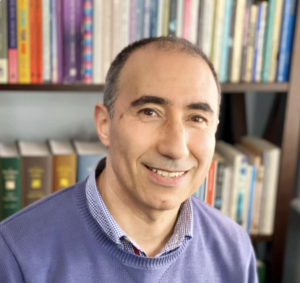This webinar will introduce mental health clinicians to mindfulness in practice as well as two validated measures of mindfulness.
Upon completion of this webinar, participants will be able to:
Format: 1 hour webinar, recording available below.
Presenter: Dr Bruno Cayoun
Dr Bruno Cayoun has provided two recourses:
Webinar Summary
Mindfulness training requires paying objective attention, sustained in our experience of the present moment, in a way that is non-reactive and unbiased by personal views and values. The skills tend to transfer naturally from formal meditative practice into daily life, where the benefits permeate our day-to-day experiences. However, most existing questionnaires attempt to measure mindfulness skills themselves, which is prone to biases for people inexperienced in mindfulness practices. For instance, what scores should we expect when asking a person who has very low self-awareness how mindful they are? Another limitation relates to predictive validity in clinical practice. More often than not, items measure attention rather than mindfulness and are peripheral to the meaningful outcomes that clinicians are trying to measure. For example, “I snack without being aware that I’m eating” (from the MAAS) may not be relevant to our clinical work.
Two short self-report questionnaires were developed to overcome these limitations, the Mindfulness-based Self-Efficacy Scale (MSES-R) and the Equanimity Scale 16 (ES-16).
The MSES-R measures the meaningful effects of having integrated mindfulness in daily life by assessing how individuals are able to cope with common life stressors across 6 subscales. The ES-16 measures equanimity, which is an even-minded mental state that prevents reactivity (craving and aversion) and fosters the ability to accept change in one’s experience.

Dr Bruno Cayoun is a clinical and research psychologist and developer of Mindfulness-integrated Cognitive Behaviour Therapy (MiCBT). He is the founder and Director of the MiCBT Institute, a leading provider of MiCBT training and professional development to mental health services and professional associations internationally since 2003.
He keeps a private practice in Hobart, Australia, undertakes mindfulness research at the MiCBT Institute, and regularly cooperates on mindfulness-based research with various universities in Australia and abroad. He has practised mindfulness meditation in the Burmese Vipassana tradition of Ledi Sayadaw, U Ba Khin and S. N. Goenka and undergone intensive training in France, Nepal, India, and Australia since 1989.
He is the author of Mindfulness-integrated CBT: Principles and Practice (Wiley, 2011) and Mindfulness-integrated CBT for Well-Being and Personal Growth (Wiley, 2015), and co-author of The Clinical Handbook of Mindfulness-integrated CBT: A Step-by-Step Guide for Therapists (Wiley, 2019). He is also the co-developer of validated questionnaires, the Mindfulness-based Self Efficacy Scale and the Equanimity Scale-16, both published in the journal Mindfulness.
NovoPsych’s mission is to help mental health services use psychometric science to improve client outcomes.
© 2023 Copyright – NovoPsych – All rights reserved